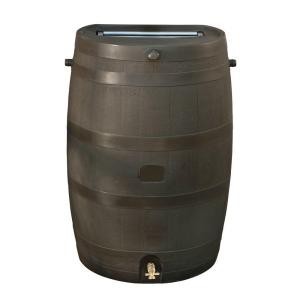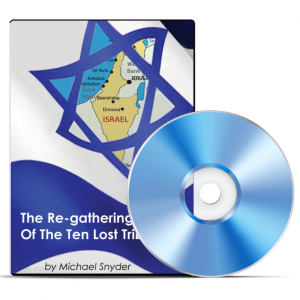 ****This is a guest post by Barbara Fix**** Water collection was once a matter of personal choice. Not anymore. Three states; Utah, Washington, and Colorado have determined water collection on private property is verboten to varying degrees; a no fly zone of which, should you be caught collecting what runs off your roof, will gain you a fine. When public outcry resulted over this draconian regulation, the official knee-jerk response from elected officials was “The water belongs to someone else.” Just whom that someone else is has not been announced, and many following this recent threat are waiting with baited breath to find out who owns our rainwater and why. Let’s hope a recent study preformed in Douglass County, Colorado catches the public’s attention, as it offers a little muscle to fight back against regulations the seek control of our food chain, holistic medicines, health care and now, rainwater. The study revealed that those who collected rainwater for personal use used less water from the region’s water facility, nor did it have a negative impact upon the aquifer and groundwater supplies. The study’s finding lead to the granting of personal rainwater collection, on a small scale, for Douglas County residents. I don’t know about you, but the water “study” makes about as much sense as the CDC’s study on “Zombie Apocalypse” attacks.
****This is a guest post by Barbara Fix**** Water collection was once a matter of personal choice. Not anymore. Three states; Utah, Washington, and Colorado have determined water collection on private property is verboten to varying degrees; a no fly zone of which, should you be caught collecting what runs off your roof, will gain you a fine. When public outcry resulted over this draconian regulation, the official knee-jerk response from elected officials was “The water belongs to someone else.” Just whom that someone else is has not been announced, and many following this recent threat are waiting with baited breath to find out who owns our rainwater and why. Let’s hope a recent study preformed in Douglass County, Colorado catches the public’s attention, as it offers a little muscle to fight back against regulations the seek control of our food chain, holistic medicines, health care and now, rainwater. The study revealed that those who collected rainwater for personal use used less water from the region’s water facility, nor did it have a negative impact upon the aquifer and groundwater supplies. The study’s finding lead to the granting of personal rainwater collection, on a small scale, for Douglas County residents. I don’t know about you, but the water “study” makes about as much sense as the CDC’s study on “Zombie Apocalypse” attacks.
50 gal. Rain Barrel With Brass Spigot, Brown
Water Collection Ideas - Pinterest
Water is Life
The average person can survive without water for 2 days in temperatures of 120 degrees and 10 days in temperatures of 50 degrees. When you are active and exposed to hot weather, the body requires close to one gallon of water a day. If you are interested in basic preparedness, water should go to the very top of your priority list, preferably stored in food grade water containment barrels.
Commerce and Pocketbooks Negatively Impacted
Industrious homeowners likewise benefit from rainwater collection as a means to reduce their monthly water bill and enable them to practice water conservation. For many homesteaders, off-girders and small farmers, this regulation amounts to attacks on their freedom and their livelihoods. Water collection has even caught the interest of mainstream business owners interested in keeping their overhead down. Imagine Mark Millers surprise when he invested in a water collection system only to be told he had broken the law. Apparently Salt Lake City, Utah officials found him guilty of diverting rainwater by routing it into holding tanks. His intention, he sated, was to practice conservation for car washes done routinely at his Toyota dealership in one of the nations driest states. The final outcome was equitable, however, for even though the city had deemed these water rights belonged to the governing body, they made allowances for Mr. Miller to “borrow” their water.
A High Price Paid May Be Paid For Complacency
Many of us depend solely upon our local water district. However, water districts are dependant upon the electrical grid—with the exception of diesel generators and battery back up for grid-down emergencies. Even then, emergency back up can only be depended upon for a short while. We take bathing, doing laundry, washing dishes, and flushing a toilet for granted. Yet, as indelicate as the subject matter is, at a time of grid-down, water delivery and sewer drainage may cease. For those of you with a septic system, there is good news; drainage for septic systems are not tied in to a sewer system. But first, you’ll need water to test this theory.
The electrical grid has already proven to be vulnerable to cyber attack with a documented case of foreigners hacking into a programmable logic controller after onset of smart-grid planning went into effect which is heavily reliant on computer interface. Other concerns are the possibility of a coronal mass ejection from our recently temperamental sun and electromagnetic weaponry—both possibilities are capable of taking down the electrical grid with little to no warning.
Conservation and The Pocket Book Aren’t the Only Considerations
Many have turned to rainwater collection due to their concern over the safety of drinking water. Official testing has revealed the high levels of fluoride used for water treatment has a negative effect on health, including hyperactivity in children, brain damage, Alzheimer’s, bone cancer, impaired immune system, birth defects and a laundry list of other health related issues. The risk of consuming fluoride is doubly circumspect considering that fluoride is not proven to have significant cavity-protecting abilities. Additionally, water testing preformed in various locations across the country has uncovered trace amounts of antidepressants, heart medication, caffeine and birth control.
If you are interested in rainwater storage, look online for do-it-yourself instructions to make an affordable rainwater collection system. Should you want to begin purifying drinking water, look to either the Berkey or Katadyn. They’re not cheap, but neither are trips to the doctor.
If there was an unexpected emergency, do you have a 72-hour emergency kit in your car that will get you home safely? And when you arrive is there enough food, water and medical supplies to see you and your loved ones past a short-term or long-term crisis? If the answer is no, Survival Diva offers common sense, drama-free advice on bullets, bandages and food storage that won’t break the bank!
http://www.survivaldiva.com/index.html
Survival Diva Available for E-Book Download $3.95
Join the fun at Survival Diva blog for more heads-up on current events and budget-saving advice on food storage and all things preparedness related http://www.survivaldiva.com/










